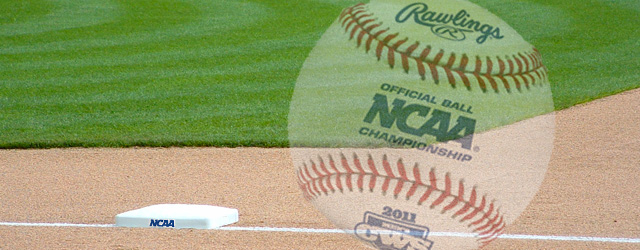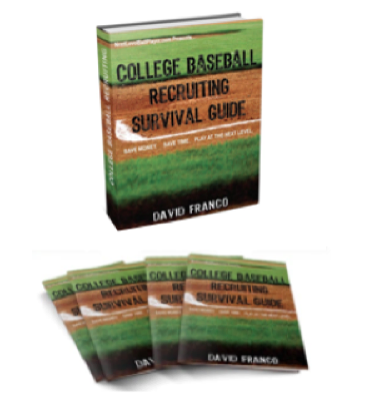Today’s guest post comes from Coach Jake Boss. Coach Boss is the head baseball coach at Michigan State University. He has been coaching baseball at the Division I level since the 1998 season when he was an assistant at Eastern Michigan. He has also served as an assistant at the University of Michigan, and later returned as the head coach of Eastern before accepting his current position at MSU. Coach Boss is also the co-author of the book, Dare to Hit .400, and has been a member of the American Baseball Coaches Association since 1995. You can learn more about Coach Jake Boss by visiting here.

The transition from high school to college both on and off the field can be a very smooth one for some and for others can be a very trying time. There is no doubt that at any level, the college game and life is very different from the high school routine and how a student-athlete adapts will help determine what kind of success he has on the field, in the classroom, and in his off the field life. For a collegiate baseball player, the fall is an exciting time with school starting up again and fall practice underway, but it can be very overwhelming for some as they try to adjust to a completely new lifestyle. The next few paragraphs will examine what differences our staff has noticed between the high school and collegiate level and the best way to bridge that gap and enjoy a smooth transition.
On the Field
In short, the game at the collegiate level is faster. Pitchers throw harder, breaking balls are sharper, hitters are faster and hit with more power, and great defensive plays at the high school level are somewhat routine at the next level. As you move up levels, that is generally the case. 17 and 18 year old freshmen coming in and playing for the first time against young men up to 23 yrs old in some cases will experience a period of adjustment in the speed of the game and the rate at which they are expected to retain information. I’ve heard many coaches at this level state that they should only have to teach something one time and then they expect the fundamental to be performed correctly. Unrealistic? Probably. But freshmen have to catch up to the other returning players quickly if they want to contribute immediately, and most are able to do so.
What the incoming player must do to transition quickly on the field is:
- Listen and try to take in all the information he can
- Think a pitch ahead so he can try to slow the game down
- Try to focus on the process of getting better and executing a fundamental correctly instead of living and dying with the end result of a pitch or an at bat!
Once the initial nerves subside and he can settle into calming himself down and just playing the game, most incoming players adapt well to the game at the next level.
Off the Field
For many, the off the field transition can be the most difficult obstacle to overcome as they move from high school to college. Classes are more spread out and if you happen to sleep in and miss class, no one is calling home and putting an absence on your report card. There is a lot more freedom at the collegiate level but there is also a lot more responsibility that is required. Incoming players must find a good balance between baseball, school, and social life. Too much of one and not enough of the other will cause one area to suffer and lag behind. A typical day for our players is as follows:
8am – Noon = class
Noon – 1pm = lunch
1pm – 2pm = extra work
2pm – 5pm = practice
5pm – 6pm = strength and conditioning
6pm – 7pm = dinner
7pm – 10pm = study table
10pm – 11pm = relax and unwind
11pm = sleep and prepare to do it all over again the next day
You can see that if you don’t take care of your body, you will get worn down and most likely get hurt. The day is very busy and structured, and most of the time incoming freshmen will excel once they get a handle on the routine. What the incoming player must do to thrive off the field at the next level is:
- Carry and use a planner so you don’t miss or forget any of your responsibilities
- Be disciplined to do what you need to do to succeed in the classroom
- Enjoy the college experience!
If you are organized you will seldom feel overwhelmed which will allow you to enjoy the best years of your life in college. The work will be difficult and the workload will be large, but once you settle into a routine, the off the field life starts to slow down a bit too, just like on the field.
It is a privilege to be a part of the growing and maturation process of a young student athlete and the transition from high school to college is a big one, but it is certainly achievable with the proper mind-set and attitude. Those who slow things down and pick up on the routine excel at a faster rate both on and off the field.
——
If you are a high school ballplayer looking for more information on the college baseball recruiting process, check out this 42-page guide designed to help players and parents navigate through the recruiting process. If you are a high school baseball player who wants to play at the next level, then the College Baseball Recruiting Survival Guide is a must have. Click here to learn more.

Leave a Reply